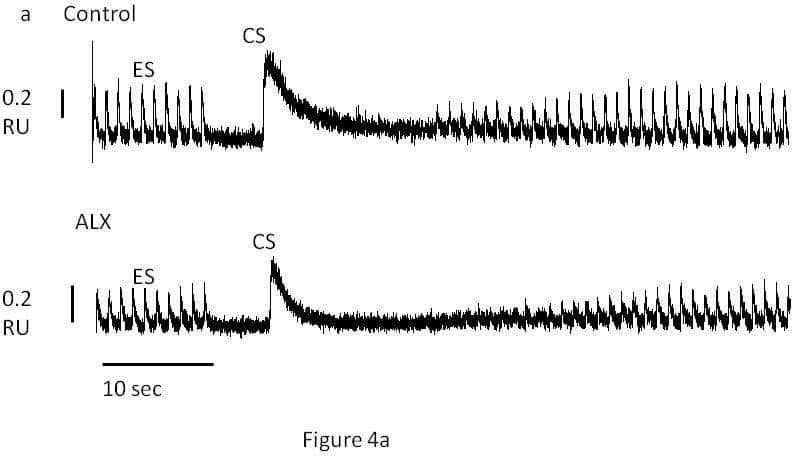Diabetes mellitus is a serious global health problem and cardiovascular complications are the major cause of morbidity and mortality in diabetic patients. The chronic effects of neonatal alloxan (ALX)-induced diabetes mellitus on ventricular myocyte contraction and intracellular Ca2+ transport have been investigated. Ventricular myocyte shortening was measured with a video edge detection system and intracellular Ca2+ was measured in fura-2 loaded cells by fluorescence photometry. Diabetes was induced in 5 day old male Wistar rats by a single intraperitoneal injection of ALX (200 mg/kg bodyweight). Experiments were performed 12 months after ALX treatment. Fasting blood glucose was elevated and blood glucose at 120 min after a glucose challenge (2g/kg bodyweight, intraperitoneal) was elevated in diabetic rats compared to age-matched controls. Amplitude of shortening was significantly (p<0.05) reduced in electrically stimulated myocytes from diabetic hearts (5.70±0.24 %) compared to controls (6.48±0.28 %). Amplitude of electrically-evoked Ca2+ transients was significantly (p<0.05) reduced in myocytes from diabetic hearts (0.11±0.01 fura-2 ratio units) compared to controls (0.15±0.01 fura-2 ratio units). Fractional sarcoplasmic reticulum Ca2+ release was not significantly (p>0.05) altered in myocytes from diabetic heart (0.70±0.03) compared to controls (0.72±0.03 fura-2 ratio units). Amplitude of caffeine stimulated Ca2+ transients was significantly (p<0.05) reduced in myocytes from diabetic hearts (0.43±0.0.02 fura-2 ratio units) compared to controls (0.51±0.03 fura-2 ratio units). Area under the caffeine-evoked Ca2+ transient was significantly (p<0.05) reduced in myocytes from diabetic heart (0.77±0.06 Vsec) compared to controls (1.14±0.12 Vsec). Intracellular Ca2+ refilling rate during electrical stimulation following application of caffeine was slower in myocytes from diabetic heart (0.013±0.001 V/sec) compared to controls (0.087±0.057 V/sec). Depressed shortening may be partly attributed to depressed sarcoplasmic reticulum Ca2+ transport in myocytes from neonatal ALX-induced diabetic rat heart.
University of Manchester (2010) Proc Physiol Soc 19, PC112
Poster Communications: The chronic effects of neonatal alloxan-induced diabetes mellitus on ventricular myocyte shortening and intracellular Ca2+ transport
Z. H. Hussien1, M. A. Qureshi1, F. C. Howarth1
1. Physiology, UAE University, Al-Ain, United Arab Emirates.
View other abstracts by:
Where applicable, experiments conform with Society ethical requirements.

